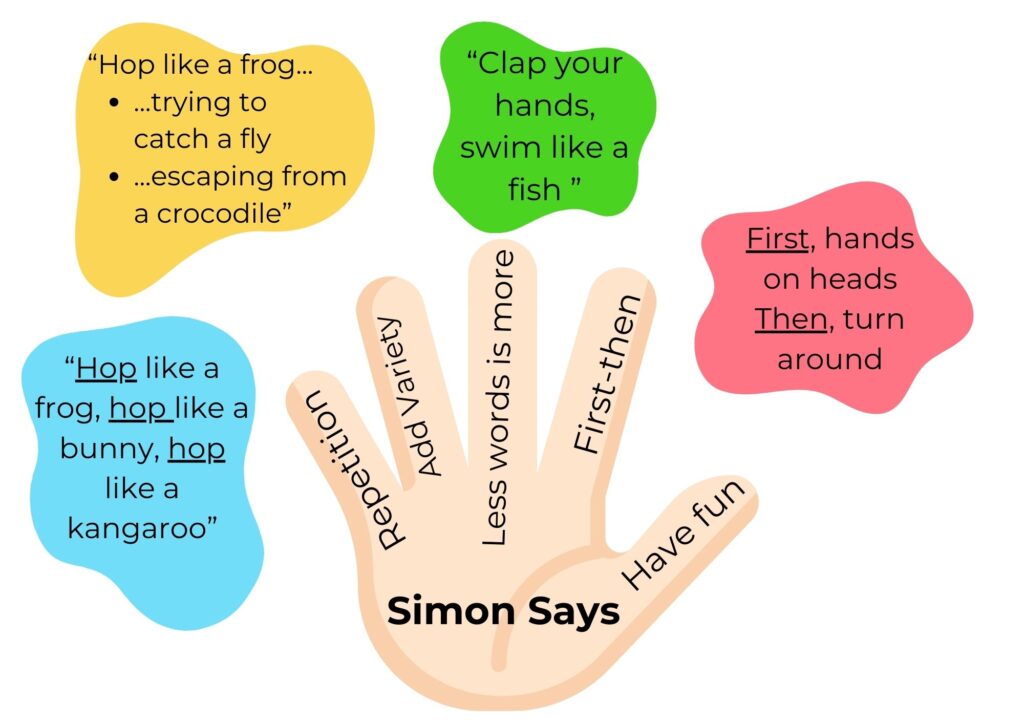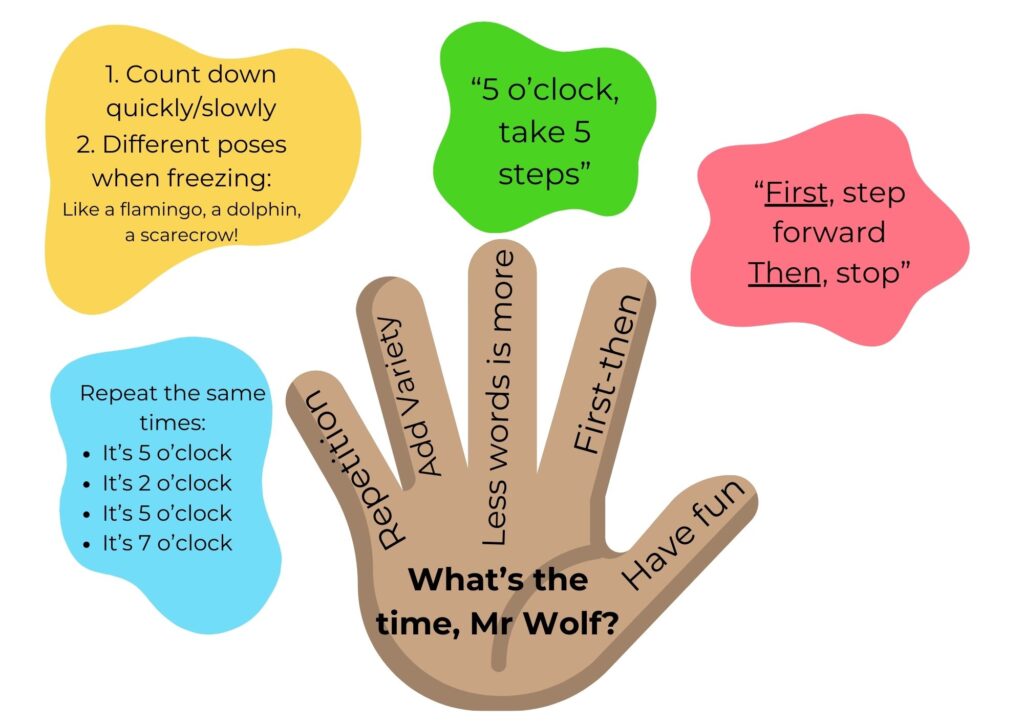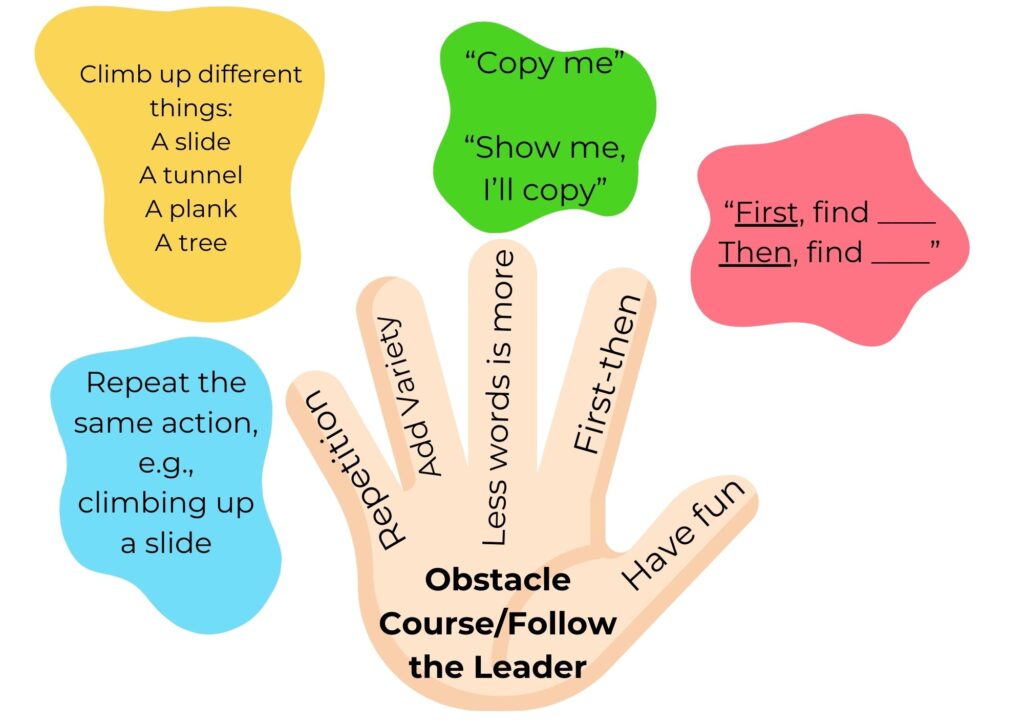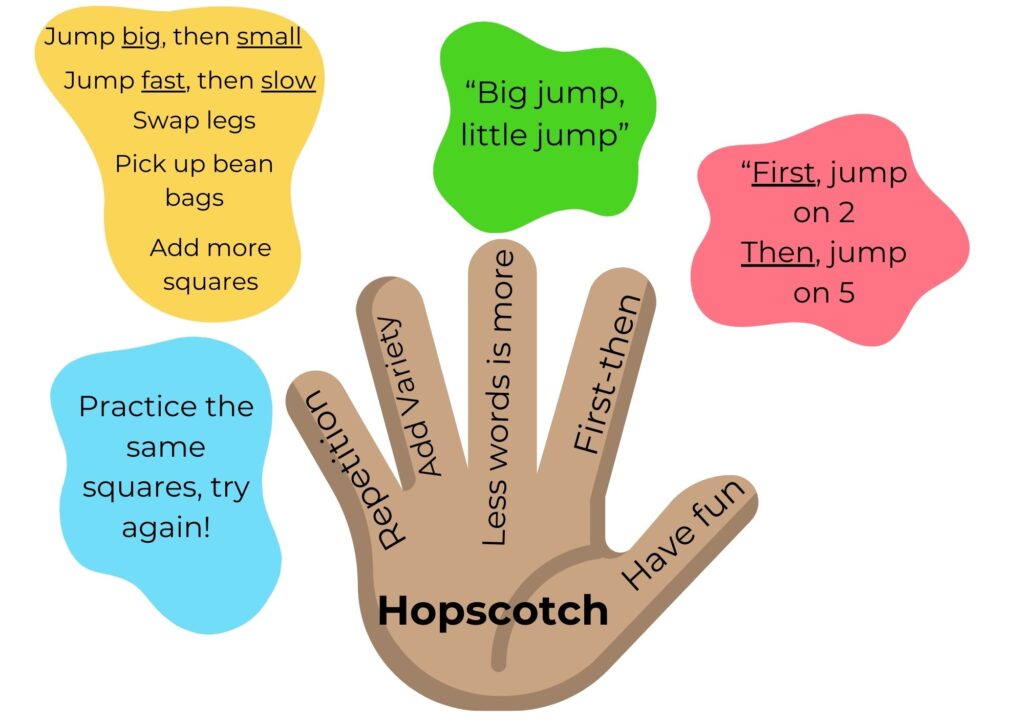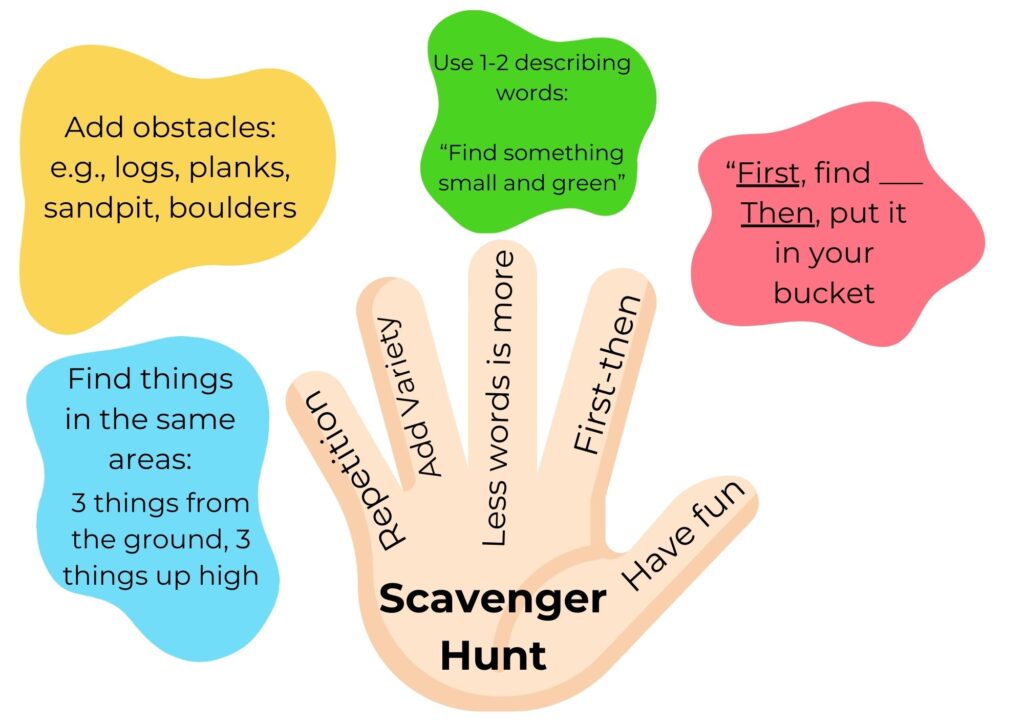5 park games to build motor planning & following directions
“Grab your bag and hop in the car”, “brush your teeth and put on your PJs”.
Kids are told instructions all the time, and kids are moving all the time. But following instructions and planning motor movements are skills children need to practice over and over again.
Well, why do we need to practice? And what is motor planning?
This is an unseen skill that develops over time as children experience new things. In simple terms, motor planning is how we move and perform actions successfully. We need our brain, nerves, body, muscles, and senses to work together to allow us to:
(1) think an idea (or “ideation”),
(2) make a plan in our brain,
(3) perform the plan with our body,
(4) feel the feedback in our movement (did it work/not work?), and
(5) adjust our body to perform the action successfully.
To learn motor plans, children need to follow instructions which is easier said than done.
To follow instructions, children need to listen, understand the words in the instruction, remember the steps and their order, then complete all the steps
Here are the top tips from Robbie (SP) and Jaime (OT) for supporting your child to develop their motor skills and ability to follow instructions.
Top tips for supporting motor skills:
- Repetition, repetition, repetition
- The more you practice, the better the brain and body learns a new movement
- Add variety and novelty to the game
- This helps the brain and body learn to be flexible and adapt to new movements
Top tips for supporting following instructions:
- Keep it short, keep it simple
- The less words you use, the more your child will remember
- Replace words like ‘before’, ‘after’ with “first…then”
- Concepts like ‘before’ and ‘after’ add an additional level of complexity to instructions and lead to confusion
- Instead, say “first…then” so your child can understand the order of actions
Here are 5 park games with these top tips in mind:
Park games are a great way to have fun while practicing motor skills and following instructions. Which one will you try?


Robbie Corgat (Speech Pathologist) & Jaime Siu (Occupational Therapist)


